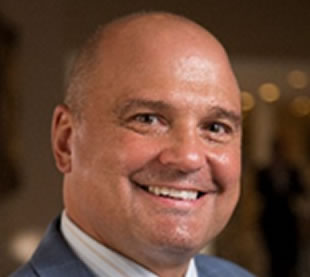
8 Financial Tips To Help Manage The Death Of A Loved One
Recently, I lost a friend to a sudden heart attack. The surviving family was face-to-face with an unplanned, difficult reality. We all know that any day can be our last, but few people make a plan for handling the financial decisions the surviving spouse or family will need to make. Avoiding the discussion around death is understandable, but eventually life continues, creditors want their money, and stewardship of assets needs to continue. Here are eight tips that can help you, your spouse, or any loved one, such as an elderly parent or unmarried child, plan for the unexpected.
 1. Know how assets are titled. Many couples don’t realize that assets held in an individual’s name do not immediately offer the right of “spousal transfer.” These include brokerage and checking accounts. When banks learn of the death of an account holder (the estate has an obligation to inform the bank about the death), the bank can freeze the account. If there is no cash available in other accounts, then more dramatic steps—such as selling longer-term assets to raise funds (which may lead to taxable gains)—may need to happen.
1. Know how assets are titled. Many couples don’t realize that assets held in an individual’s name do not immediately offer the right of “spousal transfer.” These include brokerage and checking accounts. When banks learn of the death of an account holder (the estate has an obligation to inform the bank about the death), the bank can freeze the account. If there is no cash available in other accounts, then more dramatic steps—such as selling longer-term assets to raise funds (which may lead to taxable gains)—may need to happen.
2. Know where all assets are. According to Paul O’Reilly, an attorney in Maryland, families often lack information when a loved one passes. Basic questions like “what assets were owned,” “where are they held,” and “what estate plan is in place,” are often left unanswered. O’Reilly suggests that a family member set up a “one-stop shop” to provide all needed information. This person should know about all assets and liabilities, passcodes, contact information for CPA’s, attorneys, and so forth.” O’Reilly cautions that the less a survivor knows, the more costly it is to finalize matters.
3. Be aware of how loans are handled after the death of a borrower or co-signer. Laws governing personal debt such as home mortgages and car loans can vary by state. There are consumer protections, but lenders also have rights. John Gibbins of George Mason Mortgage suggests getting prepared and then contacting the servicer of the loan. “You may need to prove that you are the named executor, and the lender will want a copy of the death certificate in order to speak with you,” explains Gibbins. He also notes that every loan servicer has a department to deal with the death of a borrower, and provided you can keep the loan current, it is in their best interest to find an amicable solution.
4. Know the terms of any credit card accounts. Cards can close automatically upon the death of the account owner; so you may need to arrange a new method of payment for services that have been set up on auto payment. If you are an authorized user on an account that was owned by the deceased, do not use the card after the main cardholder dies; because you’re not liable for the debt, use of the card after the owner passes could be considered fraud.
5. For business owners, it’s important to have a written business succession plan. The personal life and business life of an entrepreneur are often intertwined, and families of the deceased face a myriad of decisions about running the business. In some cases, the death of a business owner may trigger a stop in line-of-credit advances and could create an event of default. To avoid this, it can be beneficial to have a succession plan to keep the business running without interruption.
6. Educate yourself on investments and how to access important records. Learning during the grieving process is difficult; so don’t wait until a crisis to know about your investments, how your taxes are completed, and the basics of your financial plan. Know where copies of wills and trusts are stored and whereabouts of historical tax records. Be sure you know the user names and passwords for accounts you will want to access, including Google and Apple accounts that hold photos and family memories. If you don’t want to share information with a friend or relative, work with your bank trust department or an estate attorney.
7. Know what life insurance is owned and how to file a claim in order to avoid delays. In a previous article, I also wrote about the importance of keeping your beneficiaries current to ensure that your assets go to those depending on you. Click Here
8. Put things in writing. In the absence of a Will, state law will govern the disposition of assets; so write down what you want to happen. Be sure to focus on all aspects of your life—not just financial. For example, your pets and family heirlooms are just two non-financial items you may want to include in your documents.
During this time of grief, the surviving spouse or family member(s) may not be in the best position to make sound financial decisions; so it’s better to be ready beforehand. While it may be an uncomfortable topic, proper planning can help immensely should you or your family ever have to face this difficult experience.
Learn more about Mark Avallone’s recently released book, Countdown To Financial Freedom
Mark Avallone, MBA, CFP®, CRPS®. www.PotomacWealth.com
Securities and Investment Advisory Services offered through H.Beck, Inc., Member FINRA/SIPC. 6600 Rockledge Drive, 6th Floor, Bethesda, MD 20817 301.468.0100. Potomac Wealth Advisors, LLC is not affiliated with H.Beck, Inc.
This material represents an assessment of the market environment at a specific point in time and is not intended to be a forecast of future events, or a guarantee of future results. This information should not be relied upon by the reader as research or investment advice regarding any funds or stocks in particular, nor should it be construed as a recommendation to purchase or sell a security. Past performance is no guarantee of future results. Investments will fluctuate and when redeemed may be worth more or less than when originally invested. Diversification and asset allocation do not guarantee against loss. They are methods used to manage risk.
* Opinions expressed are subject to change without notice and are not intended as investment advice or to predict future performance.
*The economic forecasts set forth in the presentation may not develop as predicted and there can be no guarantee that strategies promoted will be successful.
* Consult your financial professional before making any investment decision.This material represents an assessment of the market environment at a specific point in time and is not intended to be a forecast of future events, or a guarantee of future results. This information should not be relied upon by the reader as research or investment advice regarding any funds or stocks in particular, nor should it be construed as a recommendation to purchase or sell a security. Past performance is no guarantee of future results. Investments will fluctuate and when redeemed may be worth more or less than when originally invested.




Engage us on Facebook
Follow us on Twitter
Tweets by @mymcmedia